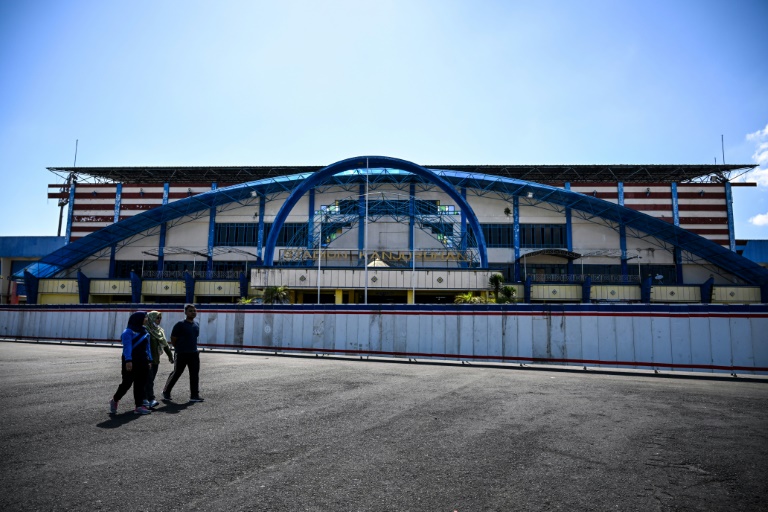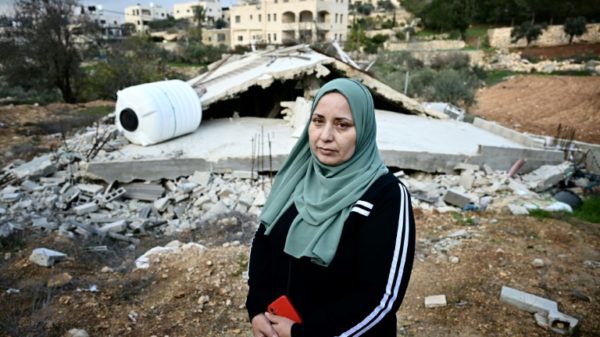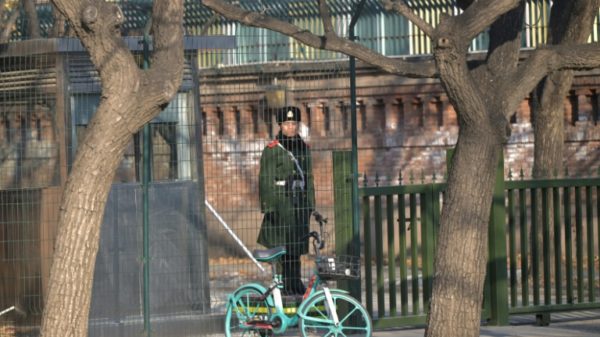The Indonesian stadium where 135 people died last year in one of football’s worst tragedies lies empty but intact, despite government pledges to demolish it and rebuild a safer site.
The red and blue stands of Kanjuruhan Stadium outside Malang city serve as a reminder to some of how little has changed since football fans — including 43 children — were trampled or suffocated to death in the October 1 stampede.
“There is no political will from the government or (Indonesian football association) PSSI to improve itself,” said Anton Sanjoyo, a sports columnist who served on the task force created after the tragedy.
The nation’s most popular sport is still reeling from the chaos unleashed when police fired tear gas into packed stands after home supporters invaded the pitch at the end of a heated match.
In the aftermath, Indonesian officials were urged to confront failings in the domestic game — blighted for years by shaky infrastructure, mismanagement and violence — and to hold organisers accountable.
The investigating task force Sanjoyo served on called for the head of Indonesia’s football association and all members of its executive committee to resign.
Instead, in the weeks immediately after the disaster, PSSI chief Mochamad Iriawan caused a furore when pictures emerged of him high-fiving and playing football with FIFA President Gianni Infantino.
Iriawan, a former Jakarta police chief, refused to stand down and saw out his term, while Arema FC was fined 250 million rupiah ($16,420) and two officials were handed lifetime bans.
FIFA pledged to pump money into the Indonesian football association and the country’s Under-23s went on to win gold at the Southeast Asian Games in May.
New PSSI president Erick Thohir — a government minister, billionaire, International Olympic Committee member and former Inter Milan owner — hailed the win, declaring a new chapter for Indonesian football.
But others, including prominent pundit Pangeran Siahaan, disagree.
“I believe that we’ve made progress, but I don’t think it’s enough,” he said.
“We still have a long way to go.”
– ‘Far from expectations’ –
President Joko “Jokowi” Widodo’s orders for a nationwide stadium audit after the disaster led to improvements at just a few facilities, pundits say — those set to host the FIFA U-17 World Cup in November. PSSI says 22 stadiums are being renovated.
The site of last year’s deadly stampede, East Java’s Kanjuruhan Stadium, was earmarked for demolition, but workers have only disassembled kiosks and stalls around its grounds.
A senior minister claimed Kanjuruhan’s capacity to be 38,000, but said 42,000 tickets were issued for the doomed match.
Arema FC’s management put the maximum capacity at 45,000, according to a human rights commission report after the tragedy.
The gates at the stadium were wide enough to fit only two people, and at the time of the crush, witnesses said some were not even open.
“The security conditions of stadiums as desired by FIFA are still far from expectations, especially in stadiums that are not prepared for the U-17 World Cup,” said Sanjoyo.
PSSI executive committee member Arya Sinulingga said safety improvements included the ongoing renovation of 22 stadiums along with the introduction of CCTV and new crowd control measures, including the testing of facial recognition technology.
It is also training match organisers to meet FIFA’s standards.
“The very important thing is, we don’t want the same incident to happen again in Indonesia,” Sinulingga told AFP.
– Fears of a repeat –
Focused on trying to lift spirits, the Indonesian football association PSSI has rarely mentioned the tragedy.
“Thohir feels he has no obligation to resolve the Kanjuruhan case. Even in meetings with journalists, he never talked about post-Kanjuruhan reform,” said Sanjoyo.
PSSI reintroduced league matches after a two-month suspension following the stampede and paid a reported $5 million to bring World Cup champions Argentina to Jakarta for a June friendly that ended in a 2-0 defeat.
“Hopefully… Indonesian football is heading in a better direction,” said football pundit and former Indonesian futsal head coach Justinus Lhaksana.
“Efforts must be made by all parties to achieve a conducive sports climate.”
But Sanjoyo says the example is not being set by the top Indonesian leaders.
“There is a strong impression that President Jokowi… does not want his relationship with FIFA to be disturbed,” he said.
Solidarity between fans has grown since the tragedy, with supporters becoming more conscious about their safety, said Siahaan.
But while away fans have been banned from many games due to fears of fan violence led by diehard “ultra” groups, fighting has still broken out between rivals.
Police also used tear gas in February against fans trying to enter the gates of a match where supporters were banned in Semarang, Central Java, but no punishment was given as authorities claimed it took place outside the stadium.
No one was injured but the incident prompted fears of a repeat tragedy.
“I can only hope that the victims are always remembered and it will be a trigger for the sports climate to be a better one,” said Lhaksana.
“Don’t let it happen again. Don’t let them die in vain.”














